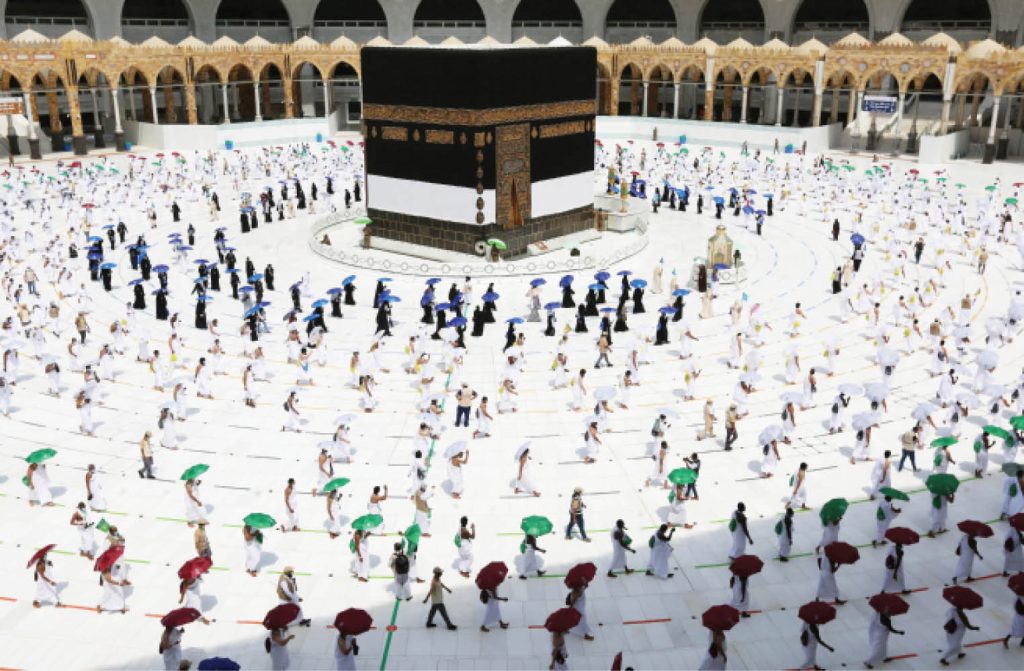Saudi authorities have apprehended over 300,000 violators of Hajj regulations, including 153,998 foreigners who arrived on tourist visas without the necessary permits.
In response, the Saudi Ministry of Hajj and Umrah has emphasised the importance of the Nusuk card.
“This card is the sole official proof for compliant pilgrims within the Holy Sites, enabling their access to services as an identification document,” the Ministry reiterated.
This Friday, on the eighth of Dhul-Hijjah, pilgrims will commence their Hajj rituals by traveling to Mina for the Day of Tarwiyah, in preparation for their ascension to Arafat on the ninth day, in accordance with the Sunnah of the Prophet Muhammad.
This year’s Hajj is marked by strict procedures and extensive services deployed by Saudi authorities across security, health, service, and logistics sectors.
In a concerted effort to ensure a smooth and secure pilgrimage, Saudi authorities have intensified measures to allow access to the Holy Sites only to those with valid Hajj permits and the Nusuk card.
The Nusuk card, a crucial identification document, facilitates the pilgrims’ stay in Mecca and their movement within the Holy Sites throughout the Hajj season.
“Hajj security forces, along with auxiliary agencies, have established extensive security perimeters to safeguard pilgrims and facilitate their movement within the Holy Sites according to designated times,” stated an official.
“We have also worked to arrest violators of Hajj regulations and apply penalties.”
The Saudi Ministry of Hajj and Umrah has reiterated the necessity for every pilgrim to carry their Nusuk card throughout their pilgrimage.
This card is the only official proof for conforming pilgrims within the Holy Sites, facilitating their access to services as an identification document.
Tawfiq Al-Rabiah, the Saudi Minister of Hajj and Umrah, emphasized the Kingdom’s unwavering commitment to serving the guests of God.
“Saudi Arabia, since its founding, has been dedicated to easing the arrival of pilgrims to the Two Holy Mosques and Holy Sites, ensuring they can perform their rituals with ease and reassurance while receiving the highest levels of care and attention,” Al-Rabiah said.
He emphasized the importance of adhering to regulations and instructions to ensure comprehensive service for all pilgrims.
In line with these regulations, the Council of Senior Scholars in Saudi Arabia issued a fatwa declaring it impermissible to perform Hajj without a permit, deeming it a sin not to obtain one.
“Those who were unable to obtain a Hajj permit are considered unable to perform Hajj,” they explained, highlighting that obtaining a permit aligns with Sharia principles of maximizing benefits and minimizing harm, ensuring order and safety during the pilgrimage.

